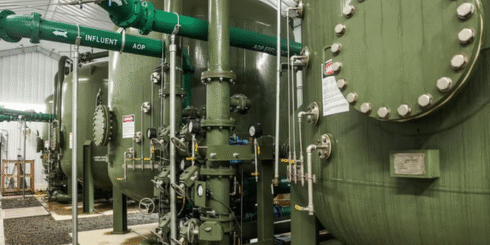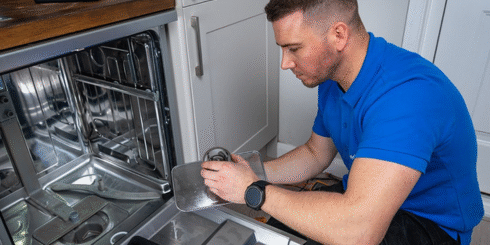When Your AC Won’t Cooperate: The Hidden Culprit Behind Cooling Problems
There’s nothing like that first blast of cool air on a hot summer day — until it suddenly stops. You press buttons, flip switches, and wonder what in the world went wrong. The house is heating up, your patience is melting, and you’re stuck wondering if you’ll need to shell out for a new unit. But sometimes, the issue isn’t nearly that dramatic.
It might just be your contactor.
Now, that little piece doesn’t get much attention — in fact, most homeowners have never even heard of it. But the contactor is the heart of your AC’s electrical system. It’s what tells your compressor and fan to kick on when you lower the thermostat. And when it fails, well, things get messy fast.
Let’s dive into what really happens when a contactor goes bad, how to spot ac contactor failure symptoms, and when to call in help before things spiral into a full-blown breakdown.
The Role of a Contactor — The Unsung Hero
Think of your AC contactor as a kind of middleman. It’s a small electrical switch inside your outdoor unit that connects (and disconnects) power to major components like the compressor and condenser fan.
When you set your thermostat, it sends a signal to the contactor. The contactor then closes a circuit, letting electricity flow and powering up your system. When the room hits the set temperature, it opens the circuit again, shutting things off.
It sounds simple, but without it, your AC wouldn’t know when to run or stop. It’s like having a car without an ignition switch — the engine might be fine, but you’ve got no way to turn it on.
Subtle but Serious: AC Contactor Failure Symptoms
Here’s where things get tricky. A contactor doesn’t usually fail all at once. It gives you warning signs — tiny hints that something’s off — but they’re easy to miss unless you’re paying attention.
One of the first red flags is inconsistent cooling. Maybe your system runs fine one day and barely cools the next. Or it stops and starts too often. That’s often because the contactor is sticking — either not engaging properly or failing to release once engaged.
You might also hear unusual clicking sounds. A contactor is supposed to make a single clean “click” when it turns on and off. If you hear multiple rapid clicks or none at all, that’s a sign the switch isn’t completing the circuit smoothly.
And here’s another odd one — your outdoor unit may keep running even when the thermostat is off. That can happen if the contactor welds itself shut due to overheating or corrosion.
So, if your AC seems moody or unpredictable, it’s worth taking a closer look (or calling someone who can).
Recognizing the Signs of a Bad Contactor
Sometimes the symptoms are subtle, but sometimes they’re obvious. If your AC just refuses to turn on — no fan, no hum, no compressor — that’s a classic sign. The system is getting power, but the contactor isn’t passing it along.
You might also notice your unit humming but not actually starting. signs of a bad contactor That’s because the electrical signal is trying to reach the compressor, but the contactor isn’t engaging completely. Over time, this partial connection can cause damage to the compressor motor itself — and that’s an expensive fix.
A quick visual inspection (done safely, of course) can sometimes reveal the problem. If you see burned or pitted contacts, blackened areas, or melted insulation on the wires near the contactor, that’s a pretty clear indication it’s time for replacement.
But here’s the thing — contactors are relatively cheap and easy to replace compared to other parts of your AC. The tricky part is diagnosing the problem correctly. Many homeowners mistake a bad contactor for a bad capacitor or compressor. A qualified technician can tell the difference in minutes.
The Lifecycle of an HVAC Contactor
Like all electrical components, a contactor has a limited lifespan. hvac contactor Under normal conditions, you can expect it to last anywhere between 5 and 10 years. But its actual lifespan depends on usage, environment, and even insects — yes, bugs.
It’s surprisingly common for ants and other small insects to crawl into contactors because of the warmth and the slight magnetic field they generate. When that happens, they can get caught between the contacts, preventing them from closing properly. It sounds ridiculous until it happens — and it does, a lot.
Dust, corrosion, and heat all take their toll too. Outdoor units sit in the elements year-round, and Arizona dust storms or Florida humidity aren’t exactly kind to small metal components. A good technician will clean and inspect your contactor during routine maintenance, catching problems long before they strand you in the heat.
Why It Fails in the First Place
Contactor failure isn’t random — there’s usually a reason behind it. The most common cause is simple wear and tear. Every time your AC cycles on, those contacts arc slightly as they make and break the circuit. Over thousands of cycles, that arcing creates tiny pits that eventually interfere with proper contact.
Voltage fluctuations are another killer. If your home experiences power surges or inconsistent supply, the contactor can overheat or weld shut. That’s why surge protectors and proper grounding aren’t just for your electronics — they protect your AC too.
And then there’s maintenance. Skipping seasonal tune-ups might save money in the short term, but it lets small electrical problems go unnoticed. Once corrosion sets in, the contactor’s performance declines quickly.
Can You Fix It Yourself?
Technically, yes — but only if you’re confident working with electricity. The contactor sits in the high-voltage circuit of your AC unit, so safety comes first. Always turn off power at the breaker and the disconnect box before touching anything.
Replacing the part itself isn’t hard. You can find universal replacements online, usually for under $30. The challenge is making sure it’s the right amperage, voltage, and pole configuration for your system. Using the wrong one could cause more harm than good.
For most homeowners, it’s safer (and faster) to call a professional. A technician can diagnose the issue, confirm the contactor’s condition, and have your system running again in less than an hour.
Preventing Future Headaches
Like most HVAC issues, prevention beats repair. Schedule annual maintenance and make sure the technician checks your contactor’s condition. Keeping your outdoor unit clean, free from pests, and shaded from extreme heat can also help extend its lifespan.
You can also listen to your AC. Those little sounds — the clean “click” when it starts up, the steady hum of the fan — become familiar over time. When something changes, trust your instincts.
The sooner you catch electrical issues, the easier (and cheaper) they are to fix.
Wrapping It Up
The contactor may be a small piece of your air conditioning system, but it plays a huge role in keeping your home comfortable. Ignoring it is like ignoring the spark plugs in your car — it might run fine for a while, but when it fails, everything stops.
Learning to recognize the symptoms, knowing when to call for help, and keeping up with regular maintenance are all you need to stay ahead of the problem.



